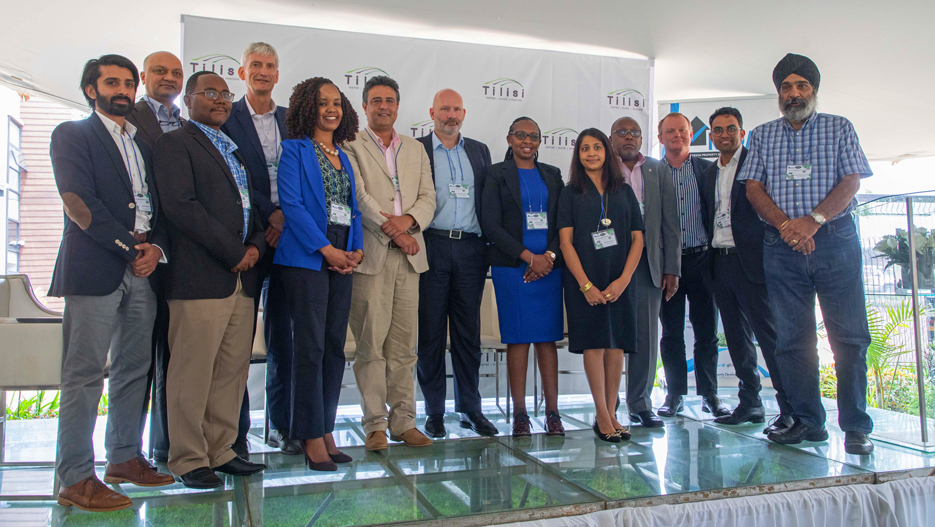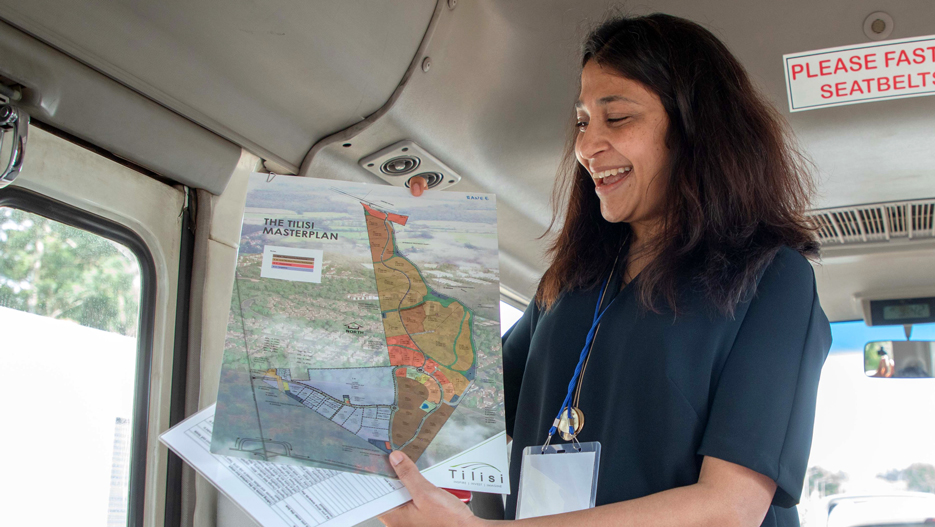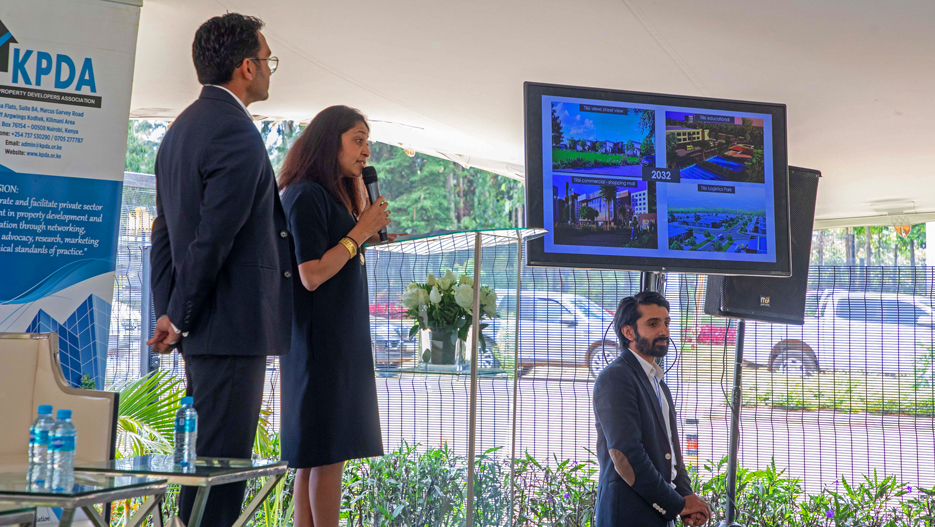Tilisi: Understanding the Advantages of Developing in a Master Planned Project
On Tuesday, 25th of February Tilisi hosted a panel discussion on Understanding the Advantages of Developing in a Master Planned Project in conjunction with the Kenya Property Developers Association (KPDA). Tilisi is a 400-acre mixed-use urban development, distinctly zoned into residential, commercial and logistics precincts. Set just 30 km from Nairobi’s CBD, at the intersection of Limuru Road and Waiyaki Way.

On Tuesday, 25th of February Tilisi hosted a panel discussion on Understanding the Advantages of Developing in a Master Planned Project in conjunction with the Kenya Property Developers Association (KPDA). The moderator for the discussion was Nick Langford, a renowned real estate expert, and the panelists were the following industry leaders:
– Simon Herd, Managing Partner of MACE YMR – a leading Project Management and Cost Consulting firm in Kenya and East Africa;
– Richard Hough, CEO of Africa Logistics Properties (ALP) – the pioneers of developing ‘grade A’ warehousing in Kenya;
– Ravi Kohli, Managing Director of Karibu Homes Ltd, one of the first successful private developers to focussing on providing low cost housing in Kenya;
– Esther Omulele, Managing Partner of MMC ASAFO, a leading law firm in Kenya.

For Simon Herd, the biggest advantage of developing in a master planned and serviced development is the certainty of cost. ‘Whilst the initial land cost may seem a little expensive, the developer is totally de-risking any variables in getting infrastructure to the site. All the infrastructure in master planned developments such as Tilisi is ready and a developer is buying land where he or she can tap off existing infrastructure. This allows more accurate forecasting which is essential when getting a project signed off by investors. We have seen several cases where clients have bought land and have completely underestimated the cost of bringing in the infrastructure and the costs of approvals. In some scenarios, these costs have completely derailed the project from the onset.’
From ALP’s perspective, buying into a project and not having to worry about the approvals and any ambiguities on the land was a big benefit. ‘We came into Kenya 4 years ago, and did not have any experience in this market. Being able to buy a piece of land knowing we could build exactly what we were thinking of, and knowing we were buying into a clean title was a huge advantage. We could have found other cheaper land, but it may have taken us 12-18 months longer to find suitable land, which has a massive impact on our IRR’s,’ added Richard Hough.

Ravi Kohli, who has already built over 500 low cost apartments in Athi River says the zoning restrictions in such developments is a big pull factor. ‘One of the reasons we bought into a master planned scheme, is the fact that we have certainty about the environment we were building in. Elsewhere, we would have no control of who our neighbours are. Imagine our buyers’ reactions if a cement factory were to set up adjacent to our housing scheme? In these master planned and controlled developments, you have assurances of zoning and know your neighbour will not be building something which will devalue your project.’
In addition to the above, Kenya’s property market has been notorious for the issuance of fraudulent land titles. Esther Omuele has personal experience in this. ‘We have had a case where a client had bought a piece of land in 2012 but nothing has moved since then, as there has been several issues with the title. To this day, we are still in court and effectively our client is now stuck. The Tilisi-ALP deal took a year to close with an extremely extensive due diligence process. With this kind of calibre of purchaser and the due diligence required by their foreigh investors, any prospective buyer would have a much higher degree of comfort that the title is clean.’
Mixed use developments don’t come without its sceptics and critics. With the magnitude of the costs involved, there have been cases projects have stalled or abandoned mid way with developers struggling to fund their projects. Ranee Nanji, co-CEO of Tilisi gives her thoughts on this, ‘Unfortunately, in the last 10 years there have been some large developments which haven’t delivered as promised. As a result, people buying into these schemes have had their fingers burnt. We have had our own sceptics in the past, however, these conversations are a lot easier now compared to a few years back, as we have not only delivered the infrastructure at Tilisi but it is of a high quality’.

Many critics also question the timing of these schemes. Naturally, these projects are long term projects and require patience and patient capital. Several ‘mega-projects’ have been launched in and despite making considerable progress, it seems that the completion of the project is still in the distant future. Kavit Shah, co-CEO at Tilisi remarked that ‘Tilisi is relatively small compared to some of the other developments out there. We are 400 acres, and whilst it may appear quite large, we have sold more than half our land already. The fact that buildings are coming up, and added advantage of the upgrade of the Nairobi-Nakuru highway will only increase interest in Tilisi. We are projecting to have sold all our land by 2025 and are also projecting all plots are fully developed by 2032.’
About Tilisi: Tilisi is a 400-acre mixed-use urban development, distinctly zoned into residential, commercial and logistics precincts. Set just 30 km from Nairobi’s CBD, at the intersection of Limuru Road and Waiyaki Way, the development offers outstanding access and infrastructure. The development is owned and managed by a consortium of long-standing and experienced Nairobi-based developers. The master-planned suburb has been inspired by the vision of achieving a managed development in Kenya with world-class infrastructure.
Phase 1 of infrastructure in Tilisi was completed in December 2018 while Phase 2 is currently ongoing, opening up the commercial, middle & high-density residential areas. This will be completed by December 2020. Tilisi have currently invested KShs 1.5bn in infrastructure and have pledged a further KShs 2.5bn to complete all infrastructure works.
For more information, please visit: tilisi.co.ke.
FAIR USE POLICY
This material (including media content) may not be published, broadcasted, rewritten, or redistributed. However, linking directly to the page (including the source, i.e. Marcopolis.net) is permitted and encouraged.